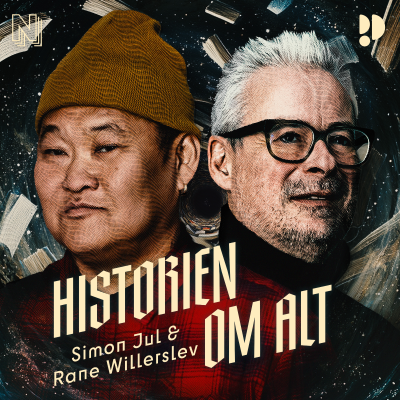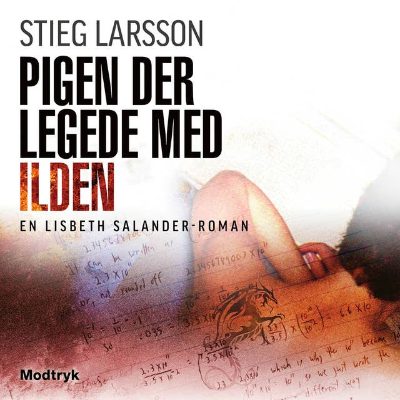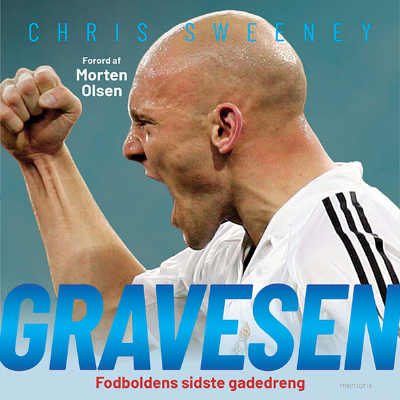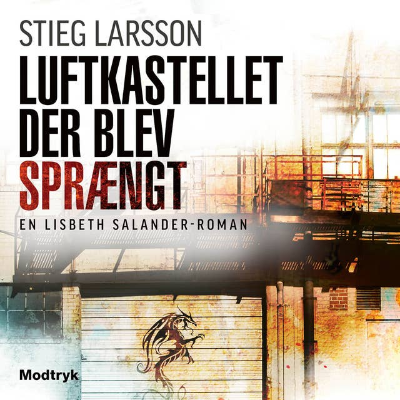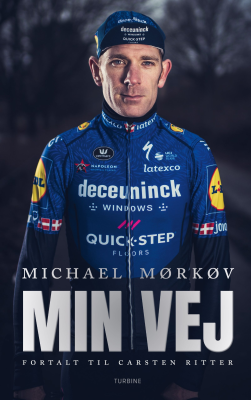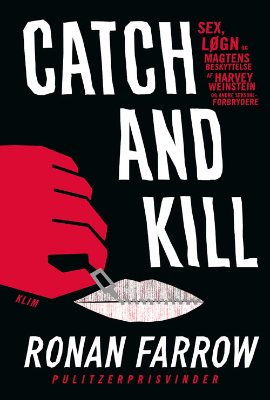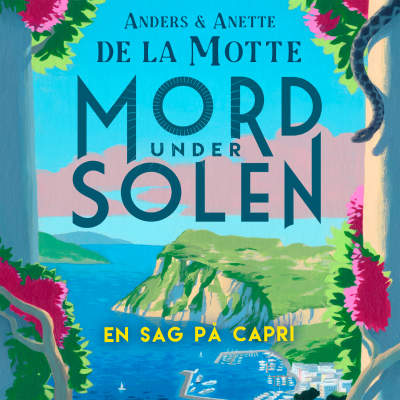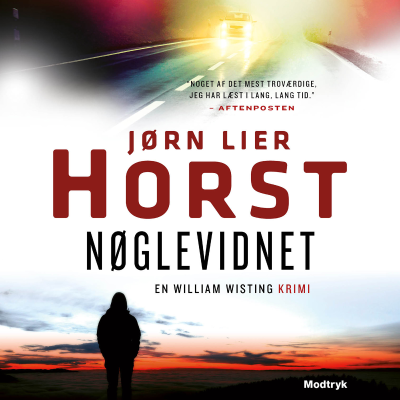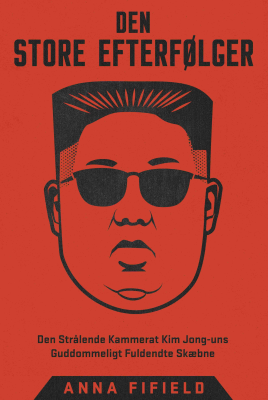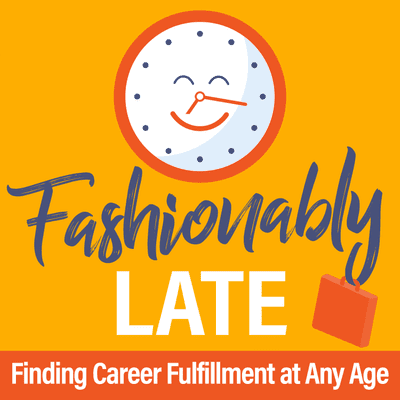
Fashionably Late
Podcast af Amy Rowland
Prøv gratis i 7 dage
99 kr. / måned efter prøveperiode.Ingen binding.

Mere end 1 million lyttere
Du vil elske Podimo, og du er ikke alene
Rated 4.7 in the App Store
Læs mere Fashionably Late
Fashionably Late is a podcast about finding career fulfillment at any age. In this weekly podcast, Amy Rowland interviews guests who share their inspiring career stories as well as experts who give practical advice on things like how to present your best self in interviews and how to stay confident during the job search process. Remember--even if you arrive a little late, you’re right on time.
Alle episoder
62 episoderIn this final episode, Amy talks about what she has learned doing this podcast and why she is ending the podcast now.Â
Today Amy introduces us to Bailey Surtees. It won’t be the last time you will hear about her as the work she and a team of cofounders are doing is consequential. Her career pivot is in progress, and we’re on hand to witness as she and her work evolve.  Bailey tells us she was interested in science at an early age. She loved biology in high school, and she loved what she had learned to that point about engineering and problem solving. As she headed off to college from home in Oklahoma to Johns Hopkins University in Maryland, she wasn’t yet sure how her two interests would coalesce, but once she arrived, she fit in nicely as a bioengineering major.  Bailey’s career journey began in earnest during her senior year at JHU. As an assignment in a senior design program, she and some fellow students were challenged with a problem solving project. They teamed with field clinicians and what they eventually came up with was  remarkable work they hoped would be game changing. Their project eventually led to the founding of a business, and Bailey became the lead.   Originally, the team’s goal was to study both breast cancer diagnoses and treatments for patients in low resource countries. But they soon modified their study after they learned professionals in the field were far more concerned about treatment than about diagnosis. This was because they had no viable way to treat in the field following a diagnosis. This revelation caused the team to put their focus on finding a way to provide treatment methods that would work in field conditions. They determined they’d spend a year researching this, and by the end of that year, they had come up with their own treatment method which was unlike anything else available.  The team applied for grants to sustain their efforts post-graduation. They wanted to work full time on the project as they’d become convinced that it had commercial potential. They eventually were ready to move from research to development. Six years have passed and Bailey’s company, Kubanda Cryotherapy, is growing. But what is this treatment?  It is a minimally invasive cryotherapy technique for lumps and bumps and is currently being used on pets, Bailey explains. Kubanda started in the pet therapy market to help them fast forward to human treatment. It is a cost effective alternative to surgical resections, and right now it’s being used by veterinarians with the hope for an eventual go-ahead for human trials.  Bailey says the treatment trades a “knife for a needle�. She describes the simple procedure and emphasizes how inexpensive it is. All that’s needed is a CO2 tank. No electricity is required. A needle is inserted into the lump or tumor. The needle is then chilled to -70 degrees. This rapidly creates ice in the tissue, and those sharp ice shards quickly attack and burst the cells. The patient experiences minimal pain and does not have to go through the traditionally long recovery period.  As they move hopefully forward to human trials, they continue to rely on grants but are now raising money through investors too. Bailey has nothing but confidence in the viability of their cryotherapy treatment, and she hopes her enthusiasm is contagious as fund raising is a part of her job now. The founding group plans to continue expansion by reaching out to even more veterinarians around the country. She manages this task as part of what she does on a day to day basis as well. She often fills in or helps out with the work being done by the other founders too. She describes how she loves being a jack of all trades for the business. She says at present she’s learning about HR functions as the company takes on new hires.  Bailey gave Amy some advice and takeaways she would pass on to other entrepreneurs:  * It’s more doable than you think. Don’t be intimidated * Reach out to other entrepreneurs for their support. There is a powerful network of people willing to help you the same they were helped when they began. Network with people who are a step ahead of you * Be patient. It takes time to reach your ultimate goal * Be open to taking on unexpected roles as you might learn something new about yourself in the process.  Links:  * com * com/in/bailey-surtees [https://www.linkedin.com/in/bailey-surtees]
Today we meet Sharon Werner who will share with us the story of her fascinating career pivot from New York thespian to Senior Vice President at Home Box Office. Sharon begins her narrative as an undergrad at Bryn Mawr. She initially thought she would study medicine, but after experiencing some related classes, she changed her major to English and turned her focus to studying the rich literature of both the Renaissance and Medieval periods.  By graduation, she had not found her career direction yet, so she took a job as a “gofer� at the Museum of Modern Art in New York City. The job paid very little, but it gave her more time to explore and think about her future. With a great interest in theater, she signed up for a scene study class at the Herbert Berghof Studio but felt she should pursue something more conventional as well. Thus she sent out applications to graduate schools where she hoped to continue her English literature studies. Just as she was accepted at Princeton, she landed a plum part in a musical she had auditioned for. The production was the Fantasticks and she was cast as The Girl (Luisa), a leading role. This posed a career dilemma for sure, but in the end, the road less traveled led off-Broadway.  Sharon learned quickly that you need to know a thing or two about business if you’re going to live on actor’s wages. She was young and inexperienced but learning quickly. She left the Fantasticks role after almost 2 years, and did summer stock and small parts in other off-Broadway productions.  A series of theater gigs, and jobs like being a gift wrapper or a salesperson at B. Altman, followed. Where was she going?  A friend suggested to her that she possessed skills that might make her a good attorney. Sharon scoffed and thought being an attorney was “one step up from being an accountant.� But since nothing else was coming her way, she decided she had nothing to lose by taking the LSAT. She was sure she wouldn’t do well, and she could chalk off that occupation from the list of possibilities.  Fortunately, she was very wrong and she received a high score. Still reluctant, friends encouraged her to apply to top law schools with her stellar test performance. She again mailed out applications, while she continued to keep her theater options open.  While her applications were out to various law schools, she received a last minute call to back up a singer in a musical revue. (The actress who had the role was not feeling well, but she thought she’d still be able to go on.) And though the music didn’t match Sharon’s style or range, she took the job since the production was in a pinch, and she was available. Again, fate stepped in and she actually had to perform as the original actress could not. Sharon did well and was hired to understudy all the female parts for the show.  Sharon intended to stay with the revue through its run, but again there were other plans afoot for her in the universe. With only 2 weeks left for the show, Sharon received an acceptance letter from Harvard Law School. And this would not be the only acceptance letter she received. She had come once more to a fork in the road. Should she take the route towards the more conventional law school choice or stick with the ever quixotic theater work?  She decided to give law school a try. Harvard was not offering the scholarship money she needed, so she chose to attend Columbia which proved more generous. Amazingly, she loved law school. She found the coursework engaging and stimulating. She made law review and Law Revue! Keeping her love of theater alive, she and some of her fellow students put together fun sketches and parodies about life at law school. Her time at Columbia was greatly successful, and when her studies were completed, she was hired as a clerk for the Honorable James Oakes of the Second Circuit U.S. Court of Appeals.  She was in the clerkship for a year when another opportunity came her way.  Sharon was hired for a position in the entertainment department at Paul, Weiss, Rifkind, Wharton & Garrison. This prestigious firm had the reputation of being the best in entertainment law in New York City. Although her friends assumed this was exactly what Sharon should do, Sharon reserved judgment as to whether this was really the right course for her. She began tentatively but found out she was well-suited. She truly enjoyed her work and learned a lot in the 3 years she was there.  She next moved on to a position at MTV but was there for just a year when she was recruited by HBO. It was at HBO where the rest of her career awaited her. The work was immensely fun, challenging and gratifying, and Sharon retired from HBO recently as a Senior Vice President. Listen to her recount the growth and changes that took place at the media giant while she was there. She describes for us what it was like to work at HBO and we catch a glimpse of some programs and stars she encountered.  Amy asks if she is happy she made the pivot from theater to law. Sharon tells her she enjoyed both occupations, but law “is the kind of career that makes sense.� She also discusses how she’s handling her recent retirement as after a merger, HBO offered many employees near retirement age the opportunity for a buy-out. Sharon describes how coming to terms with a new lifestyle has unfolded, especially during the pandemic. She says she was surprised at how the pivot from work to retirement was emotionally more difficult than she anticipated, and how the first year of retirement was a struggle. You will enjoy hearing about Sharon’s unique career pivot. If you’re like me, you’ll find yourself wishing you could hear some more of the fun anecdotes she surely could tell about her times as both an actress and an entertainment attorney.  Sharon offers some advice and some takeaways today in her interview: * When you are just starting, if you lack confidence, listen to the advice of those who know you. They will send you in directions you might not dare to go without a push * Keep an open mind to all possibilities, even those that seem unlikely * You don’t have to rush with your career choice. It’s okay to have some life experience first * Find joy in whatever work you are doing * There are transferable skills in all types of work
Dr. Pinkey Patel grew up helping her parents run motels. Her mother and father had come to the United States with no education and no money and were determined Pinkey would eventually go to college. Pinkey was an excellent student, especially in math and science, so although she would have to pay her own way, she was in agreement with her parents that college was in her future. As her high school class valedictorian, she was well prepared to gather scholarships to help pay her college expenses. Interested in studying some area of healthcare, she chose pharmacy to be her major. She went directly from undergraduate school to her Pharm.D degree, finishing in 6 1/2 years by 2011. As she scouted for scholarship opportunities throughout that time, Pinkey looked to the Miss America Pageant system as a scholarship source. On a second try she won a regional level pageant. In order to advance to the state competition, among other things, she was required to work with a fitness trainer. It was at this point that Pinkey was introduced to both fitness training and body building, interests that would influence and steer her career for the future. Through the pageant experience, she became very interested in muscle mechanics and physiology. She decided that she was more than just an enthusiast, so she eventually gained certification as a personal trainer through the National Society of Sports Medicine. She taught fitness classes during both her graduate and undergrad years, and after her marriage, she participated in a couple of body building competitions. Her education coupled with her fitness avocation came together to form the foundation for her career pivot. In order to keep her fitness certification, Pinkey enrolled annually for continuing education classes. She decided to put her focus on pre and post-natal fitness. Though she had no children of her own yet, she was listening to the concerns of other women as they talked about a myriad of health and fitness problems they experienced before and after they gave birth. She began to investigate some of the fallacies that traditionally drove fitness and health care in this period of women’s lives. Her investigation finally culminated in The Snapback, an all-inclusive and intuitive postpartum app, but it didn’t happen overnight. Her first move in the app’s eventual creation was to launch a like-minded community in 2018. She interacted with other women on topics of concern they brought up like bladder control, breast feeding, etc. This community convinced her she definitely had found an audience in need of sound, factual information, and it reassured her that an app to address their many needs would be extremely useful. In this interview, you will hear her detail some of the creative features she’s developed for her app to address the vast variety of questions new mothers have. In September of 2019, she launched The Snapback in 166 countries. Her app has grown sufficiently that in April of 2021, she gave up her full time clinical pharmacy position to oversee her growing online presence. She continues to do one-on-one consulting though in order to stay close to the market she serves. Amy broaches the question of motivation. She asks Pinkey what drives her and makes her so passionate about her new work. Pinkey responds by saying that leaving her pharmacy position was the hardest thing she has ever had to do. She had focused all her early years on building that stable career and walking away from it was a big risk to take. But she says she had seen too often unqualified people badly advising vulnerable, exhausted new mothers. She knew she had the knowledge and tools to do better for them. Pinkey also tells us about her continued search for funding now and how The Snapback is currently operating financially. She confesses what a big learning curve she is grappling with when it comes to business practices. She’s often engaged in on the job training. The pandemic made it even harder to learn, but now as things open up, she’s able to take advantage of the more available resources for learning. She points out that less than 3% of women receive venture capital funding, but she is working hard to be included in that statistic.     Takeaways:  * Don’t be in a rush. Give yourself ample time to think about your options * Patience is very necessary. Your big idea won’t come to fruition overnight. Be prepared to have some failures but keep tweaking * You can balance your side hustle(s) with your new venture, but know at some point if you’re successful, you’re going to have to go all in * It’s important to identify and build your values into your enterprise from the beginning * Build your business culture from the ground up.  Links  * https://www.linkedin.com/in/pinkeypatel/  * com
Meet Viola Brumskine, a woman with many talents and interests. Viola was a curious child who had many questions about everything. With lots of energy and even more curiosity, her parents thought steering her towards journalism was appropriate. By the time she entered Howard University, she was settled on a major in communications with a minor in journalism and public relations. This initial plan was modified near the end of her undergrad years however, and at graduation, she had earned her baccalaureate degree in intercultural communications with an emphasis in public relations.  During the time she was working on the communications degree, Viola enrolled in a debate class. She found she had an affinity for debate, and when her professor noted this talent, he passed along a favorable word to the Howard mock trial coach. The coach asked her to join the team and when she did, she found most in the group were prelaw majors. Viola then began to give thought to law school too, especially since she found success with mock trial. She had family who really encouraged her as well, but she felt obligated to complete the undergrad major in communications she had first embarked upon. So at that point, though interested in law school, she was not ready for a commitment yet.  Her first job post-graduation was with a lobbyist firm. She spent 18 months in that position during which time she gave much thought to where her career was going. At the end of that period, she had made a final decision to go to law school and eventually enrolled at the University of Kentucky in Lexington.  Following law school, she moved home to Maryland and prepared for the bar exam. Upon completion, she landed a clerkship with the Montgomery County Circuit Court, an impressive early career accomplishment and a solid addition to her resume. Her heart was still with the mock trial skills she had gained though. Thus, when the opportunity came along, Viola signed on as a litigation associate at Saul Kerpelman & Associates where she stayed for 6 years.  Midway through her time there, she became restless. She felt something was missing from her career even though she knew she had a great job many others would envy. She continued to think about what the missing “it� might be. Finally, she revisited a goal she had considered during her youth. She had wanted to work in some capacity for the United Nations. Now she became focused on bringing that old dream to life.  One of the partners at the litigation firm helped her out. He had a relative who worked for the U.N. who might give her some valuable insight. What she learned was how hard it was to get a job there. But undaunted, she applied for nearly 100 positions, none of which resulted in a job. Still she didn’t give up. At this point she dug in and decided to turn all her attention and focus to her U.N. goal.  A former classmate gave her a call and told her about a potential position she had learned of from friends working at the U.N. Viola knew what she still needed was to find out the apparent secret to getting hired there. She discovered through them that she hadn’t understood the recruitment system nor how to communicate what she really had to offer. Learning this, she was able to fine tune her application and rework her resume, and in a few months she was offered a U.N. position in Dakar, Senegal.  Viola had recently married and had a husband to consider if and when she accepted the post. He was supportive of her desire to work there, but she explained how being with the U.N. would mean among other things, moving frequently. There would be potentially other sacrifices too that would impact on them as a family if she followed her dream job. They made the joint decision that Viola would try out the position and see if it was truly what she wanted. Later then they would take a more informed look before she made a firm commitment.  Viola’s U.N. employment only lasted for 18 months. She had become ill in Dakar and required medical treatment in the United States. While being treated in the US, she reflected on the time she had spent in Dakar. She realized that she had learned a lot from her short stint, but this had not turned out to be the missing “it� job she was searching for. She explains she felt the U.N. position was a stepping off point for her to something greater though, and after much thought, she believed her next move might be in the area of consulting.   One of the valuable lessons she had gained from her time with the U.N. was how a business reorganization is done. Since the U.N. was going through a huge reorganization process while she was with them, she was able to observe much about streamlining, facilitating change, evaluating processes, etc. As she observed, she was fascinated by it all and found herself closely evaluating every step that had been taken to restructure the vast entity. She now wanted to know more about change management.  In fall of 2019, she began exploring the available university study programs in organizational development. She decided that an executive certificate program offered at Georgetown University in organizational consulting and change leadership might be what she was looking for. The year-long course was designed for mid-level executives ready to pivot in their careers, and this was exactly what Viola was planning to do. So in January 2020, she began the Georgetown course and learned about the framework for successful consulting. She was anxious to apply her own experiences, talents and competencies to that framework so she would have the confidence to find her place in the consulting field.  Since finishing her certification this past January, she has found a position as a Senior Consultant with a company called Corner Alliance in the Washington, D.C. area. She describes to Amy the work she’s doing there now and gives great advice about what she’s learned in order to make a successful pivot. Here are some of the takeaways and advice you might find valuable to listen for in today’s podcast:  Takeaways: * Viola set up daily Zoom coffee meetings and networked with many of the professionals she had been taught by, gone to school with or worked with. This extensive networking opened lots of doors * She hired a career coach/consultant; (her enthusiasm for doing this is truly worth listening to) * She advises not to despair if you if you don’t know your “dream job� right away, or if you think you’ve found your “dream job� but it doesn’t work out * She says learning about yourself is crucial if you want to find a position you will truly want to stick with  LinkedIn: linkedin.com/in/violalbmoves [https://www.linkedin.com/in/violalbmoves]

Rated 4.7 in the App Store
Prøv gratis i 7 dage
99 kr. / måned efter prøveperiode.Ingen binding.
Eksklusive podcasts
Uden reklamer
Gratis podcasts
Lydbøger
20 timer / måned








